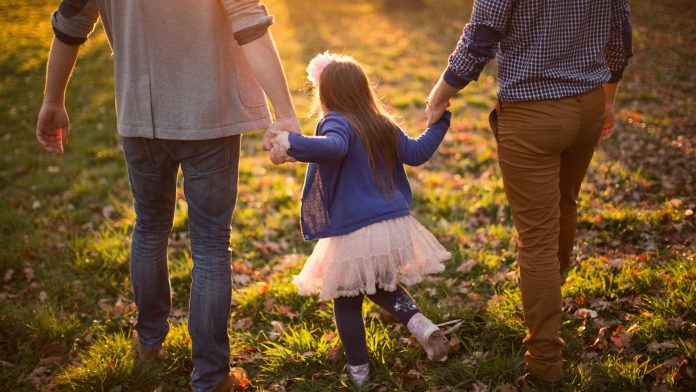This article is written by Aditi Aggarwal, a student of Symbiosis Law School, NOIDA. This article discusses the legal provisions in different countries for the LGBT community and religious anatomy regarding adoption across the world. This article is edited by Smaranika Sen and Daisy.
Table of Contents
Introduction
After catching sight of a newspaper article in India mentioning that adoption by same-sex couples must be legalized in the context of covid tragedy, it is clear that the fight for LGBT rights is still not over. Even though same-sex adoption is legal in around 40 countries across the world, many countries still do not have any provisions for same-sex adoption couples because of their religious beliefs. In fact, ten states in the US allow religious groups to refuse adoption to such couples.
Religious anatomy regarding adoption by LGBT couple
Beliefs of conservative Christians
According to many conservative Christians, homosexuality is a changeable, unnatural and a deviant behavior and, is a chosen lifestyle. In general, they also believe that such behaviour is condemned by the Bible and hated by God. Pentecostal, one of the Christian religions believes that homosexuality is a choice, it is evil and it is wrong.
Concerning LGBT marriages and parenting, conservative Christians have the following beliefs:
- Granting the same rights that heterosexuals enjoy to the LGBT community would pose a danger to society.
- Same-sex marriage poses a threat to heterosexual marriages and the family system.
- If children would grow up in a family of gay or lesbian families, they would be harmed as they would grow up without a father figure (in a lesbian household) or a mother figure (in a gay household).
- It is also believed that children when exposed to the homosexual lifestyle would be at a risk and would be likely to grow up as ‘homosexual’ themselves.
This view is opposite to what human sexuality researchers and mental health therapists believe. According to them, homosexuality is a non-chosen and a fixed orientation that is not unnatural or abnormal for a minority of people in the world.
Breaking the myths
Research conducted by the American Civil Liberties Union found that no evidence suggests that people from the LGBT community are in any way not fit to raise a child. The research confirms that such parenting helps a child in growing up with good values and in the development of a child as compared to heterosexual parents. The research also throws light on the fact that good parenting depends on a parent’s ability to take good care and impart good values to a child. It has nothing to do with sexual orientation.
Another study confirmed the following findings in the academic literature over the past four decades on the subject:
- Same-sex parents can provide care and protection like any other parent.
- Children raised by same-sex parents will experience no more developmental problems than children raised in traditional heterosexual families face.
- There is no evidence that children with same-sex parents develop a specific sexual orientation, such as homosexuality.
It has been reported that children raised in a homosexual household would more probably fight for equal rights and social justice. This is because these children would be often aware of heterosexism and thus, may choose to fight against homonegativity. These children are more likely to support equal rights for the LGBT community.
Beliefs of other religions
According to research, many fundamentalist religious groups distinguish between sexual orientation and sexual behavior and make harsher judgments on the latter. However, it has also been found that fundamentalist Christian, Muslims, Jewish, and Hindu sects, in general, cannot tolerate gays and lesbians or any particular LGBT community, regardless of their behavior.
The statements which are attributed to the Prophet Muhammad (Hadiths) interprets the Quran with a historical perspective and these are often lead to religious-based intolerance, condemning same-sex behaviors. Whereas in the religion of Judaism, there is space for a wide interpretation of religious texts because of which some of the denominations of Judaism are less likely to have religious intolerance towards the LGBT community.
Impact of religion on children for the acceptance of an LGBT parent
Religion can have a strong impact on how children connect to their LGBT parents. A child’s relationship with their parents as well as with their religion may change as they become able to reflect on experiences in their lives and mature themselves. With time, family members of such individuals may find themselves tussling between religiously-based homonegative messages they receive and their positive perception of their gay or lesbian relatives. In such a situation, their relationship with that member may be determined based on their ability to resolve these contradictory thoughts by themselves.
Impact of religion on LGBT community and the way ahead
For escaping homonegativity, some members of the LGBT community may believe that they have to decide between their religious identity and identifying as gay or lesbian. If they choose their religion, they may remain celibate. But recently scholars have argued that some gay and lesbian individuals do not believe that they have to choose, instead, they may choose to integrate their identities by attending a gay-affirming religious organization or by choosing another faith.
Roman Catholic adoption agency: opposing to same-sex foster parents
Background
Catholic Social Services (CSS) is a foster care agency in Philadelphia. The religious belief of CSS is that “marriage is a sacred bond between a man and a woman.” According to the agency, the certificate of the prospective foster families acts as their relationships’ endorsement because of which it does not certify couples who are unmarried regardless of their sexual orientation or same-sex couples who are married. CSS also contends that it does not have any objection to certify lesbian or gay individuals as single foster parents or even to place gay and lesbian children. Further, it contends that no same-sex couple has asked for certification from CSS and even if they did, the agency would have directed them to other agencies in the city.
For more than fifty years, CSS has provided foster care services to the city in a contract with the city of Philadelphia while holding to its religious beliefs. But the problem arose in 2018 when Philadelphia discovered that the agency would refuse to work with married LGBTQ couples who want to be foster parents even though no applications have been rejected yet. On this discovery, the city stopped sending foster children to the agency.
On one hand, the city argued that CSS is violative of the anti-discrimination laws of the city as it is discriminating against same-sex couples. On the other hand, the Catholic agency contended that it would go against its religious beliefs if it would work with LGBTQ foster parents. In this regard, CSS took the case to the Supreme Court of the US after the lower courts ruled in the favor of Philadelphia.
SC’s decision: Violation of the First Amendment by Philadelphia
In the case of Fulton v. Philadelphia (2021), the Supreme Court of the US unanimously ruled that by refusing to hire a CSS agency because it discovered that the organization would not approve the adoption by same-sex couples, Philadelphia has violated the First Amendment.
Chief Justice John Roberts said that there is no doubt that interest is an important factor as society has recognized gay persons and gay couples and therefore they cannot be considered social outcasts or inferior in dignity. and value. But he further said that based on facts of the particular case, such an interest cannot be justified in denying CSS an exception for its religious exercise.
After the court’s ruling, many faith-based organizations called it “religious rights’ victory” whereas those in favor of LGBTQ families’ rights conceived the judgment as discriminatory and narrow. According to LGBT rights advocates, as long as there are children in need of a home, every possible thing should be done to match them with loving parents.
Legal provisions available in India relating to adoption by an LGBT couple
Who can adopt a child?
Hindu Adoption and Maintenance Act, 1956 and Juvenile Justice (care and protection) Act, 2015 in India talks about the capacity of a person to adopt a child.
Hindu Adoption and Maintenance Act, 1956
Section 7 of the Act states about the capacity of a Hindu male to adopt a child. According to this section, a sound-minded Hindu male who is not a minor, is capable of adopting a child (any gender). Proviso attached to the section states that his wife’s consent is also needed for adopting a child. Consent is not required where the wife is no more a Hindu or she has taken a complete renunciation from the world or she has been declared to have an unsound mind by a court of competent jurisdiction. There is also an explanation attached to the section according to which, if at the time of adoption, a person has more than one wife alive, then the consent of all of them is needed unless any of them comes under the category which the proviso mentioned.
Section 8 of the Act states about the capacity of a Hindu female to adopt a child. A female who is a sound-minded Hindu, not a minor, and either unmarried or if married, there are some conditions, any one of them needs to be fulfilled:
- Her marriage has been dissolved.
- Her husband is dead.
- Her husband has renounced the world completely and finally.
- Her husband has ceased to be a Hindu.
- Her husband has been declared of unsound mind by a court of competent jurisdiction.
Juvenile Justice (Care and Protection of Children) Act, 2015
The purpose of the JJ Act is to provide a family to abandoned children living in foster care. The act’s objective is the welfare of the children. Section 57 of the Act states the eligibility for adopting a child or being prospective adoptive parents as follows:
- The parents have to be compulsorily mentally alert, mentally and financially sound, physically fit, and must have a high motivation for adopting a child and to provide a good upbringing to him.
- If the parents are a couple, then the consent of both the husband and wife is necessary for adoption.
- A divorced or a single person has to fulfill certain criteria according to adoption regulations provisions which are framed by the Authority to adopt.
- The parent should not be a single male.
Further, if any criteria are specified in the adoption regulations framed by the Authority, then that also needs to be fulfilled.
What are the restrictions for adoption under adoption law
Regulation 5 of the Adoption Regulations, 2017 puts certain restrictions for adoption which are as follows:
- The parents should not have any life-threatening medical condition.
- No couple would be allowed to adopt a child who does not have a stable marital relationship of at least two years.
- The age of the parents should be taken into account as on the date when registration was made to decide that a child of which age group can be adopted by them.
- The minimum difference between the age of a child and one of the parents must not be less than twenty-five years.
- Couples who have three or more than three children would not be capable of adopting. Two exceptions in this regard are that those children are special needs children under regulation 2(21), hard to place children under regulation 50 and if there is a relative adoption or adoption by a step-parent.
Complete adoption is not recognized in the personal law of Christians, Parsis, Muslims, and Jews. Such people can then legally take the child under guardianship under ‘The Guardian and Wards Act, 1890’. But even this act does not talk about the adoption rights of LGBT couples.
After analyzing the available provisions for adoption in India, it is clear that only married couples or a single or divorced person can adopt a child but no provision allows any for adoption by a same-sex or unmarried couple. The rights of parenthood for the LGBT community are unrecognized as of now by both society and law. Though the Apex court in many past judgments has interpreted Article 21 of the Indian Constitution to include the right to reproductive autonomy and right to motherhood, it does not seem to apply to the LGBT community. In fact, as single parents, many Indian LGBT people in same-sex relationships have adopted children, but their partners have no legal rights over the child.
Plea on adoption dismissed by the Supreme Court
A review plea was filed before the Apex Court in 2019 seeking surrogacy, marriage, and adoption rights for the LGBT community as these rights are a part of basic human rights but the SC dismissed the plea.
The plea contended that these rights were not addressed when the court gave judgment on decriminalization of consensual gay sex under Section 377 of the Indian Penal Code (IPC) 1860. The plea further contended that non-recognition of these rights is a violation of Articles 14, 15, 21, 19, and 29 of the Indian Constitution. According to the plea, heterosexuals (who are in an opposite-sex relationship) and homosexuals (who are in a same-sex relationship) are similarly circumstanced giving the reason that the general nature of the relationship is sexual and romantic.

Legal provisions available relating to adoption by LGBT couples in other countries
Since the beginning of the twenty-first century, most Western European and Scandinavian countries allow same-sex couples to marry and adopt children. In contrast to this, Southern and Eastern European countries except Spain have controversial views against gay and lesbian couples marrying or having biological children or adopting them.
European Union
On the worldwide spectrum, the EU seems relatively LGBTI-friendly. Member states of the EU are parties to many of the international instruments one of which is the ECHR- European Convention on Human Rights which lists the fundamental rights for everyone. EU also has extensive laws against discrimination. It has also initiated a United Nations declaration which called for worldwide decriminalization of homosexuality.
The 22nd Recital of the Employment Equality Directive states that its provisions do not have any effect on national laws regarding family or marital status, reproductive and adoption rights. This reflects the diversity of national traditions and policy choices. A total of 14 countries, namely the United Kingdom (2005 in England and Wales, 2009 in Scotland and 2013 in Northern Ireland), Spain (2005), Denmark (2010), Malta (2014), Sweden (2003), Belgium (2006), France (2013), Luxembourg (2015), Austria (2016), Ireland (2016), Portugal (2016), Germany (2017), Finland (2017) and Netherlands (2001) allows full joint adoption by same-sex couples. While other countries such as Estonia (2016) and Slovenia (2011) permit a stepchild adoption where a partner who is registered in a same-sex partnership can adopt the biological or adopted child of the partner. Italy makes case-to-case basis decisions by court in this regard while in Greece, same-sex couples who are in a civil partnership may foster a child but cannot adopt one.
EU begins legal action against Hungary over anti-LGBT law
Recently, a ‘Children Protection Act’ (2021) was passed by the Hungarian MPs to safeguard children’s wellbeing and to fight paedophilia. In the Act, an amendment was introduced which prohibits the portrayal of gender reassignment and homosexuality in content such as television programs addressed to minors and education material used in school to teach children. Not just this, the Consumer Protection Authority of Hungary even obliged the childrens’ books publishers presenting people from the LGBT community to include a disclaimer for depictions of behavior that deviates from traditional gender roles.
Arguing that recent Hungarian controversial laws go against the principles and laws of the EU and that it has been condemned widely as anti-LGBTIQ and discriminatory, Brussels has initiated legal action against Hungary. The country also alleges that the law is violative of some basic fundamental rights like the right to have freedom of expression and information, human dignity, the right to non-discrimination, and the right to respect private life. According to civil society organizations, a damaging stereotype is being perpetuated that merges paedophilia with homosexuality.
On the other hand, the Hungarian government contends that the law, the sole purpose of which is the protection of children, is not discriminatory against any particular community as it does not apply to the sexual orientation rights of those who are above 18 years of age. It further contends that the law aims to guarantee parents’ rights and protect the children’s rights.
United States
In the US, the Supreme Court in a series of court rulings after legalizing gay marriage in 2015, legalized adoption by same-sex couples in 50 states. Obergefell v. Hodges (2015), one of the landmark judgments of the US Court upheld the rights of homosexuals. It also declared that discriminating against them goes against the constitutional provisions of the country such as the due process of law. Under the due process of law, the values of individual liberty are treated equally in society. After this landmark judgment, many states like California and New York also amended their laws and affirmed civil rights like adoption for same-sex couples.
In another case i.e. De Boer v. Snyder (2014), the law of the State of Michigan was challenged on the ground that it is prohibitive of marriage and joint adoption of same-sex couples. Judge Friedman ruled that the ban is a violation of the constitution and declared it unconstitutional.
Some US states allow religious groups to refuse same-sex couple adoptions
Legislation has been adopted under the Religious Freedom Restoration Act, 1993 (RFRA) by many states of the US. The legislation aims at exempting the adoption agencies from the applicable law of equal protection and refuse adoption to same-sex couples for protecting their religious beliefs. The exclusion leads to a decrease in the number of couples who can adopt a child and makes the adoption of children more difficult.
United Kingdom
The UK has also legalized adoption by same-sex couples. According to UK laws, anyone who is of the age of 21 years or above can adopt a child. It does not matter what the relationship status of the person adopting is. A single parent, married couple, a couple in a civil partnership, an unmarried couple can adopt a child.
England and Wales under the Adoption and Children Act, 2002 gave the right to same-sex unmarried couples to adopt a child. Labour Party, which passed some regulations illegalizing discrimination based on sexual orientation supported the act and that resulted in the Equality Act, 2010 which replaced all the previous laws on anti-discrimination with a single act.
South Africa
The rainbow nation, South Africa (former territory of the UK) endorses the rights of homosexuals but even after that around 72% of the population still interprets that same-sex cohabitation as something morally wrong.
In the case of Du Toit and Another v. Minister of Welfare and Population Development and Others (2002), a lesbian couple filed a case on authorities who discriminated based on married and unmarried couples and which denied joint adoption to same-sex couples. The court, in this case, held that the Child Care Act, 1983, is discriminating not just against the rights of same-sex couples but also the interest of the child. The court also said that an important pillar of African society is ‘family’ and everyone should be entitled to it.
Steps taken by the Indian government regarding adoption by LGBT couples
Even though the Indian government has taken steps to provide a family to abandoned children and for recognizing the rights of the LGBT community, these steps have a limited scope and our fundamental rights like the right to equality and right to life need to be expanded to include adoption rights of LGBT community either by the legislature or by the judiciary.
Central Adoption Resource Authority (CARA)
CARA is a governmental organization within the Ministry of Women and Child Development that regulates inter-country and intra-country adoption for both foreigners and Indian residents. Under the CARA guidelines, foreigners in same-sex relationships are prohibited from adopting children in India.
Transgender Persons (Protection of Rights) Act, 2019
Though the striking down of Section 377 of the IPC 1860 by the Supreme Court was evidence of state approaching to recognize the diverse families relationships but ‘The Transgender Persons (Protection of Rights) Act, 2019’ disappointed the LGBT community as it did not take into account the basic rights of transgender like dignity, bodily autonomy, surrogacy, adoption and it went against the NALSA judgment (National Legal Services Authority v. Union of India 2014). The Act did not give any kind of recognition to the family rights of same-sex couples.
Need to find a middle ground
For the battle of LGBT rights to be won, gay advocates and religious advocates need to find a middle ground. Both the groups are drawn to adoption and fighting for the welfare of abandoned children which is why there is a greater need for both the groups to understand each other. Only with the co-operation and support from both sides, there can be progression and more acceptance for same-sex couples and their right to parenthood in society.
Conclusion
People belonging to the LGBT community are still struggling to get parenting rights at the legal ground along with facing unacceptance from society. This is broadly because of religious views, some myths about parenting, and ignorance of their sexual identity. Though many countries have taken a progressive approach regarding this matter, there is still a long way to go. The world needs to understand the fact that anyone with the ability to provide a child with a secure, safe, and loving home should be given the right to adopt a child.
References
- https://www.euronews.com/2021/07/15/eu-begins-legal-action-against-hungary-over-anti-lgbt-law
- https://www.researchgate.net/publication/341698669_Same-Sex_Couples_Adoptions_Rights_in_India
- https://www.forbes.com/sites/alisondurkee/2021/06/17/supreme-court-lets-religious-adoption-agencies-block-lgbtq-foster-parents/?sh=39c01387267c
- https://www.cnbc.com/2021/06/17/supreme-court-sides-with-catholic-adoption-agency-that-refuses-to-work-with-lgbt-couples.html
- https://theprint.in/opinion/where-are-indias-queer-parents/608267/
- https://www.livemint.com/Politics/J3opALtv29XMrLV6keC2lO/Adoption-by-samesex-couples-may-be-barred.html
- https://www.orfonline.org/expert-speak/pride-month-2020-68965/
- https://www.mtsu.edu/first-amendment/article/1750/same-sex-couple-adoption-laws
- https://www.business-standard.com/article/pti-stories/sc-dismisses-review-plea-seeking-same-sex-marriage-adoption-surrogacy-for-lgbtq-119081200515_1.html
- https://www.europarl.europa.eu/RegData/etudes/BRIE/2019/637950/EPRS_BRI(2019)637950_EN.pdf
- http://www.religioustolerance.org/hom_pare3.htm
- https://www.ncbi.nlm.nih.gov/pmc/articles/PMC4250972/
- https://blogs.lse.ac.uk/psychologylse/2016/11/28/the-psychology-of-children-with-same-sex-parents/
- https://www.legalserviceindia.com/legal/article-1878-international-transgender-parenting-rights-and-how-india-lags-behind-it.html
- https://www.csmonitor.com/USA/Politics/2020/0221/Gay-rights-religious-freedom-and-the-battle-over-adoption
LawSikho has created a telegram group for exchanging legal knowledge, referrals and various opportunities. You can click on this link and join:
https://t.me/joinchat/J_0YrBa4IBSHdpuTfQO_sA
Follow us on Instagram and subscribe to our YouTube channel for more amazing legal content.
 Serato DJ Crack 2025Serato DJ PRO Crack
Serato DJ Crack 2025Serato DJ PRO Crack










 Allow notifications
Allow notifications


